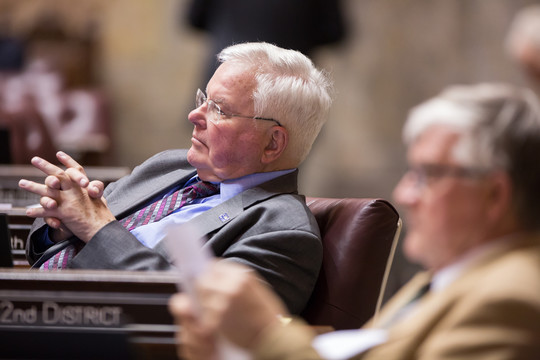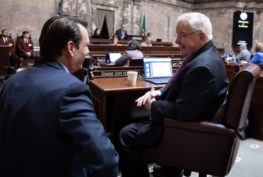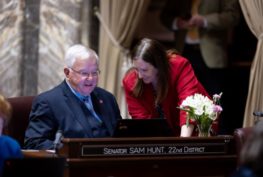Dear Neighbors,
Thanks for tuning in to the third installment of my Session Recap series. Today’s e-newsletter focuses on legislation regarding our schools and equity from the 2019 legislative session.

Higher Education
One substantial achievement this session was the passage of House Bill 2158, the Workforce Education Investment Act. This legislation brings into reach the possibility of earning a family wage by making college and apprenticeships accessible. It establishes a dedicated source of funding to allow students whose household earnings fall below 55% of the state’s median family income (approximately $50,000 per year) to study at public colleges tuition-free, and provides for partial tuition scholarships for students whose households earn up to 100% of the median family income (approximately $88,000 for a family of four).
To help students train for jobs, the act also expands the Guided Pathways program at state community colleges and technical schools and will grow high-demand degree programs like nursing, engineering and computer science.
Additionally, House Bill 1303 improves access to higher education by making it easier for full-time students in certain fields to qualify for state childcare benefits.

Funding K-12 Education
In response to the state Supreme Court’s finding in the McCleary lawsuit that the state was permitting inequitable funding for basic education across different school districts, lawmakers raised property taxes in 2017 in an attempt to equalize funding among school districts. I voted against the Republicans’ funding formula because of its increased reliance on property taxes and what proved to be a flawed regional funding model. The regionalization provided a small amount of additional funding to North Thurston but not to Olympia and Tumwater districts.
In an attempt to limit the cost to taxpayers, the amount districts could raise locally through levies was reduced, but this shift created budget shortfalls in some districts, including our three districts. This year, to alleviate the shortfalls many districts would face, the Legislature passed Senate Bill 5313 and House Bill 2140 to make sure that districts did not end up with less money from state and levy funds than they previously received.
The state’s budget this year increased funding for K-12 education by $4.5 billion dollars over the last biennial budget. However, this increase was partially offset by changes in local school levies. The increase in state funding is directed to fund state basic education requirements, some of which were previously funded by special levies.
With 295 school districts and numerous funding formulas, understanding education funding is difficult, (as is trying to explain it).
Gender Equity in Schools
It’s important that our kids feel safe to express themselves and have equal access to technology curricula.
This year we passed Senate Bill 5689, which requires school districts to adopt policies and procedures that protect transgender students from discrimination, harassment, intimidation and bullying.
Another new law, House Bill 1577, will help close the gender gap in tech jobs by ensuring that our public schools identify and track how female-identified students are doing in computer science courses in order to identify inequities and successes. This will shed light on what’s working, what isn’t working, and what changes are needed.

Equity Statewide
Senate Bill 5356 establishes the Washington State LGBTQ Commission in the Office of the Governor to monitor relevant legislation and state policies to eliminate barriers to economic and health equity for LGBTQ people.
The Legislature also made progress on establishing systems and policies to improve diversity, equity, and inclusion efforts within our state’s public agencies.
That is all for now; thanks for reading! Here in the Senate we are hard at work on legislation to promote the interests of the people of Washington state. I’d like to hear from you about the issues that are important to you. My office welcomes you to call, write, or stop by to give us your input.
Sincerely,
Sen. Sam Hunt




